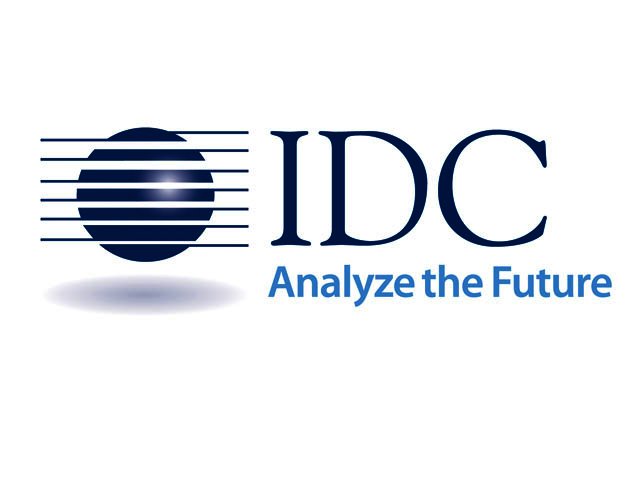IDC - Android and iOS dominated mobile OS landscape in Q1 2012
By Hanleigh Daniels 25 May 2012 | Categories: news
After first analysing smartphone and mobile phone shipments for Q1 2012, followed by tablet sales over the same period, market research company International Data Corporation (IDC) now takes a look at smartphone platforms.
According to the IDC’s Worldwide Quarterly Mobile Phone Tracker service, smartphones powered by the Android and iOS mobile operating systems (OSs) accounted for over eight out of ten smartphones shipped during Q1 2012. These two mobile platforms dominated the smartphone space, with shares of 59% and 23% respectively of smartphones shipped in Q1 2012. This is a considerable increase compared to the first quarter of 2011, when Android and iOS held a combined mobile OS share of 54.4%.
The IDC stated that this share gain means that the two biggest OS players in the smartphone space have successfully managed to distance themselves from previous market leaders Symbian and RIM’s (Research In Motion’s) BlackBerry OS, as well as other competing platforms such as Microsoft’s Windows Phone OS.
“The popularity of Android and iOS stems from a combination of factors that the competition has struggled to keep up with,” said Ramon Llamas, senior research analyst with IDC’s Mobile Phone Technology and Trends program. “Neither Android nor iOS were the first to market with some of these features, but the way they made the smartphone experience intuitive and seamless has quickly earned a massive following.”
Kevin Restivo, senior research analyst with IDC’s Worldwide Mobile Phone Tracker program, touches on the importance of available apps, adding that: “In order for operating system challengers to gain share, their creators and hardware partners need to secure developer loyalty. This is true because developer intentions or enthusiasm for a particular operating system is typically a leading indicator of hardware sales success.”
Table: IDC Worldwide Mobile Phone Tracker, 24 May 2012
Android and Samsung dominate
Google’s Android ended the quarter as the overall leader amongst the mobile OSs, accounting for almost 60% of all smartphone shipments, according to the IDC. As expected, Android also boasts the longest list of smartphone vendor partners.
Like Gartner, the IDC asserted that the new king of the mobile phone world, Samsung, was the largest contributor to Android’s success by accounting for 45.4% of all Android-based smartphone shipments. Beyond the Korean tech giant, the IDC said that an assortment of companies managed to retrench themselves or slowly increased their respective Android smartphone volumes.
iOS grows OS share, Symbian’s share shrinks
The IDC stated that Apple’s iOS recorded strong year-on-year growth (23%), due to sustained demand for the iPhone 4S after the holiday quarter as well as various new mobile operators offering Cupertino’s smartphone for the first time.
According to the IDC, Symbian posted the largest year-on-year decline, mostly as a result of Nokia switching to Windows Phone OS. The IDC noted that even as Symbian’s share falls, there continues to be a demand for this once dominant platform, with Nokia also continuing to support it with updates such as Nokia Belle and new devices the likes of the Nokia 808 PureView smartphone.
BlackBerry OS OS also decreases
RIM’s BlackBerry continued on its downward trajectory as demand for older BlackBerry devices decreased and users await the official release of BlackBerry 10 smartphones later this year. The IDC also attributed the decline to companies now allowing employees to get their own devices as opposed to providing them with a corporate-sponsored BB smartphones, enabling competing OSs to take away from BlackBerry’s market share.
The research firm noted though that although RIM has not officially released BB 10, the first couple of demonstrations of this platform has shown much improvement over the current software.
Redmond-powered OS train yet to gather momentum
According to the IDC, Microsoft’s Windows Phone OS has yet to make significant inroads in the worldwide smartphone market, but the company asserts that the rest of 2012 should see a significant ramp-up year for Nokia and other Microsoft partners such as Samsung and HTC to boost their volumes. However, the IDC added that until Nokia adds more models to its Lumia range, or new vendors use Windows Phone OS, it expects slow growth for this OS.
Linux remains on the fringes
The IDC stated that Linux maintained its small presence in the global smartphone market, mostly due to Samsung still favouring Android and its own bada platform over new Linux OSs. By the end of the quarter, Samsung accounted for 81.6% of all Linux-powered smartphones, a 3.6% share gain versus the year before. The IDC said that Linux’s mobile fortunes are closely tied to Samsung’s smartphone strategy, which already sees the Korean company making use of Android, Windows Phone OS, bada and later this year, the Linux-based Tizen.
In related news, market research firm Gartner recently provided its figures surrounding smartphone and mobile phone sales during Q1 2012, whilst the IDC analysed media tablet sales for Q1 2012.
Most Read Articles

Have Your Say
What new tech or developments are you most anticipating this year?




